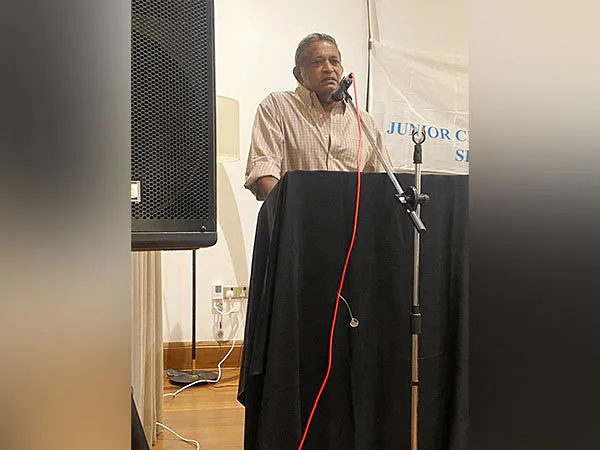China’s reluctance to accept the proposed debt restructuring could deprive Sri Lanka of the International Monetary Fund’s (IMF) USD 2.9 billion credit facility, said Dr Paikiasothy Saravanamuttu, Executive Director of the Centre of Policy Alternatives (CPA), The Island Online reported.
Dr Paikiasothy Saravanamuttu made the remarks at a workshop held in Kandy. The staff-level agreement will be implemented only after the countries that Sri Lanka is indebted to agree on how the debt needs to be restructured. The nations that Sri Lanka is indebted to are Japan, China, India and the European Union.
Dr Paikiasothy Saravanamuttu said that the IMF expected each creditor to be treated equally which China is unwilling to accept. He stated that China was not happy with Sri Lanka’s decision to approach the IMF and has even offered to give more loans to Sri Lanka, as per The Island Online report.
The CPA Executive Director said that IMF will release USD 2.9 billion by January or February 2023 if China agrees to restructure debt. However, Sri Lanka will have to wait for the IMF’s board meeting in March 2023 if Beijing does not agree to the proposed debt restructuring. He stressed that Sri Lanka will need USD 850 million to pay for essentials during this period.
Dr Saravanamuttu said that the people of Sri Lanka should not blame the politicians for the situation in the country as it is the citizens who have placed them there and given them the power. He stressed that the people have a responsibility to see that the situation improves in Sri Lanka.
Expressing views about the Sri Lankan protests, Dr Saravanamuttu said that various groups raised the demand for Rajapaksas to go home and “return the money that they stole from the country,” as per The Island Nation report.
As per The Island Nation report, he stressed that people have “got rid of the Rajapaksas,” however, they did not have any idea about how to “recover the country’s plundered wealth or what type of governance that the country ought to have.”
Meanwhile, the United Nations (UN) team in Sri Lanka and non-governmental organisations on November 8 revised and extended their joint Humanitarian Needs and Priorities (HNP) Plan, which aims to provide life-saving assistance to 3.4 million people amid Sri Lanka’s worst economic crisis since independence.
Since June, the Humanitarian Needs and Priorities (HNP) has been responding to the government’s request for UN-backed multi-sector support for Sri Lanka’s debt and food and medicine shortages. The HNP, aligned with appeals from other UN agencies has raised USD 79 million for Sri Lanka.
“Governments and donor agencies have helped the humanitarian community reach over 1 million of the country’s most vulnerable people with cash, food, school meals, medicine, protection, and livelihood support,” the UN mission in Sri Lanka said in a statement.

